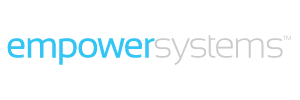
01 Jun The Power of Integration: How US Healthcare Data Can Improve Outcomes and Benefit Patient Populations
Source: Empower Systems
In an era where technology drives innovation across every sector, the healthcare industry stands at a pivotal juncture. One of the most promising avenues for transformation is the integration of healthcare data. By harnessing the power of comprehensive, interconnected data systems, we can improve patient outcomes, streamline operations, and foster a more personalized approach to care. Here is perspective on the key benefits of integrating US healthcare data and how it can revolutionize patient care.
1. Enhanced Patient Outcomes Through Data-Driven Insights
One of the most significant benefits of integrating healthcare data is the ability to leverage data-driven insights to enhance patient outcomes. By consolidating patient records from various sources, healthcare providers gain a holistic view of a patient’s health history. This comprehensive perspective allows for:
- Accurate Diagnoses: Access to complete patient histories enables physicians to make more accurate diagnoses, reducing the likelihood of misdiagnosis and ensuring timely, appropriate treatment.
- Personalized Treatment Plans: Integrated data supports the development of personalized treatment plans tailored to individual patient needs, considering their unique medical histories, genetics, and lifestyle factors.
- Preventive Care: Predictive analytics can identify patients at risk for certain conditions, enabling early intervention and preventive care measures that can mitigate the progression of diseases.
2. Improved Coordination of Care
Healthcare data integration facilitates seamless communication and coordination among different care providers. When patient information is readily accessible across various healthcare settings, it ensures continuity of care, which is critical for:
- Chronic Disease Management: Patients with chronic conditions often see multiple specialists. Integrated data allows for coordinated care plans and reduces the risk of conflicting treatments or overlooked information.
- Care Transitions: Smooth transitions between care settings, such as from hospital to home care, are essential for patient recovery. Integrated data ensures that all providers involved have the necessary information to support the patient effectively.
- Emergency Care: In emergency situations, having access to a patient’s comprehensive medical history can be lifesaving, allowing for quicker and more informed decision-making.
3. Streamlined Operations and Reduced Costs
The integration of healthcare data can also lead to more efficient healthcare operations and reduced costs. Key operational benefits include:
- Elimination of Redundant Tests: When patient records are integrated, there is less need for duplicate tests and procedures, saving time and resources.
- Efficient Resource Allocation: Data integration helps in better resource planning and allocation, ensuring that healthcare facilities are adequately staffed and equipped to meet patient needs.
- Administrative Efficiency: Integrated data systems reduce paperwork and administrative burden, allowing healthcare professionals to focus more on patient care rather than administrative tasks.
4. Advancements in Medical Research
Integrated healthcare data is a goldmine for medical research. Large datasets encompassing diverse patient populations enable researchers to:
- Identify Trends and Patterns: Analyze health trends and disease patterns across different demographics and regions, leading to better understanding and new insights.
- Accelerate Drug Development: Comprehensive data can streamline clinical trials by identifying suitable participants and monitoring outcomes more effectively.
- Develop Public Health Strategies: Data integration supports public health initiatives by providing accurate information on health trends, outbreaks, and the effectiveness of interventions.
5. Empowered Patients and Improved Patient Engagement
When patients have access to their integrated health records, they become more engaged in their care. Benefits include:
- Informed Decision-Making: Patients can make informed decisions about their health and treatment options when they have a clear understanding of their medical history.
- Self-Management: Access to health data empowers patients to take an active role in managing chronic conditions, adhering to treatment plans, and maintaining healthy lifestyles.
- Enhanced Communication: Better communication between patients and providers, facilitated by shared access to comprehensive health records, leads to more effective and satisfying healthcare experiences.
Conclusion
The integration of US healthcare data holds immense potential to transform patient care, streamline operations, and drive medical research forward. By breaking down data silos and fostering a more connected healthcare ecosystem, we can achieve better health outcomes and create a more efficient, effective, and patient-centered healthcare system. As technology continues to evolve, the ongoing integration of healthcare data will undoubtedly play a crucial role in shaping the future of healthcare, benefiting patients and providers alike.

